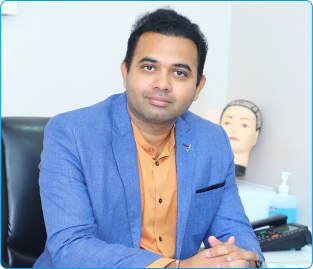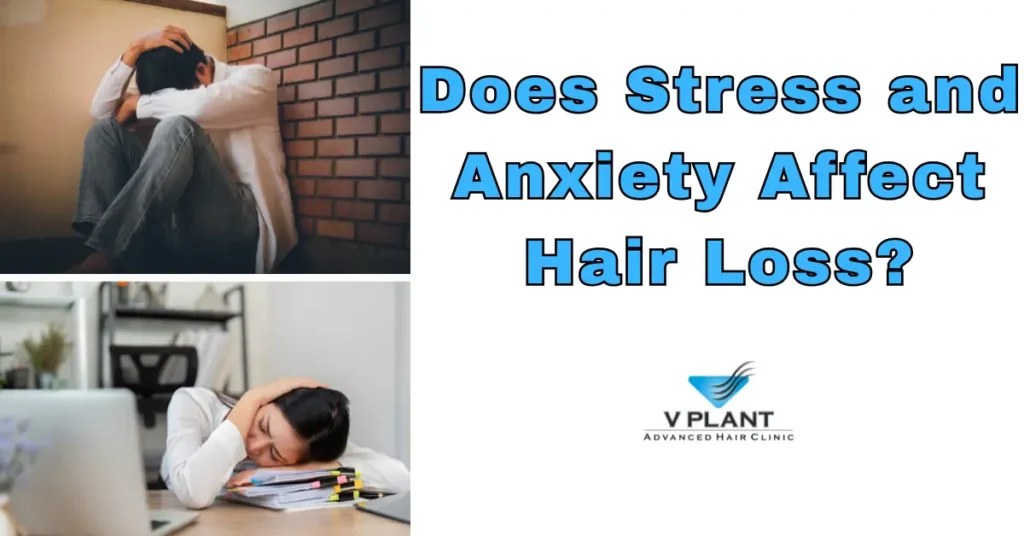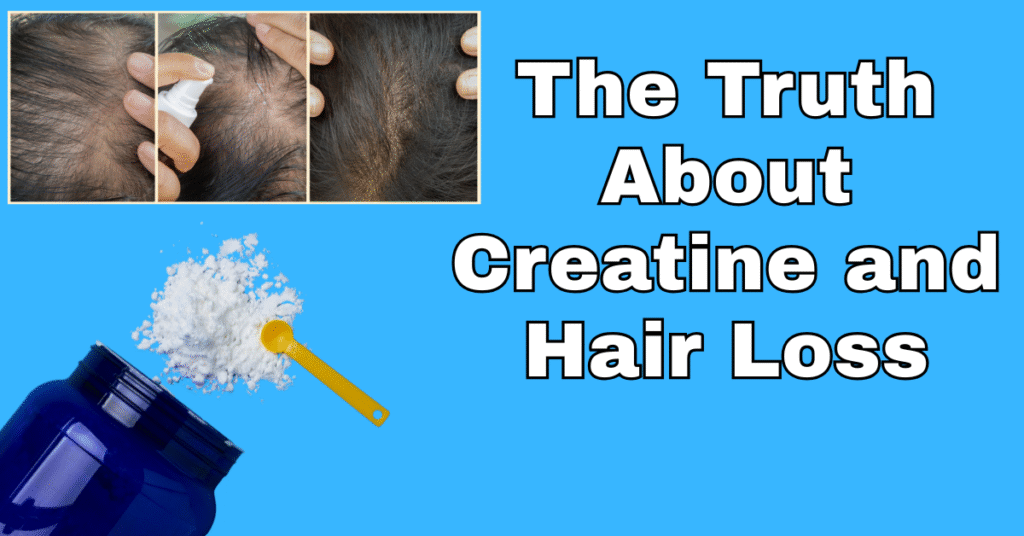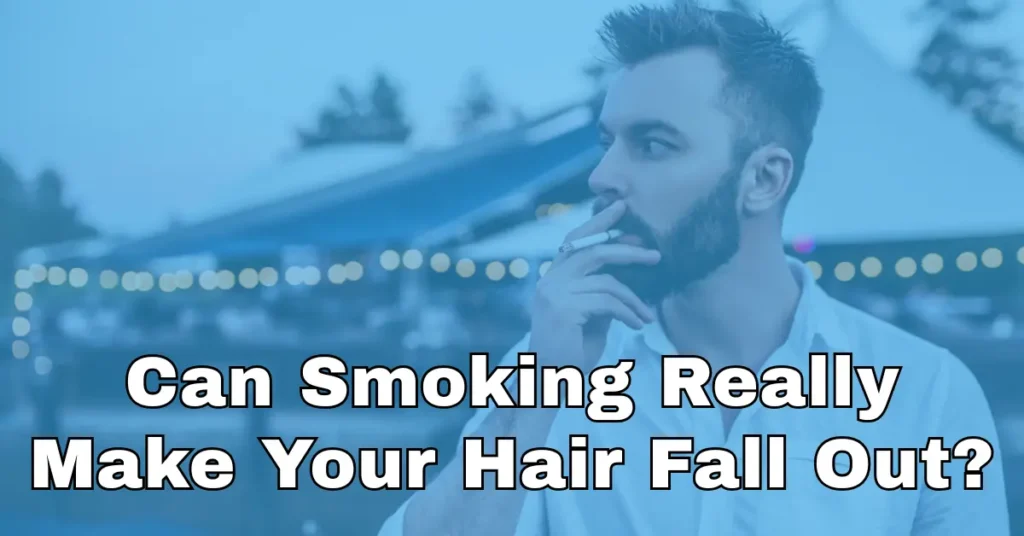Does Stress and Anxiety Affect Hair Loss? Many people notice their hair thinning or shedding more during stressful periods, and it’s not just in their imagination. Stress and anxiety can disrupt the natural hair growth cycle, pushing more hair follicles into the resting phase, which leads to visible hair fall. This topic is particularly relevant for anyone noticing sudden shedding, patchy thinning, or changes in hair density, whether due to work pressures, life events, or chronic anxiety. Understanding the link between mental well-being and hair health allows you to take proactive steps—such as stress management techniques, proper nutrition, or professional treatment for hair loss—to support hair regrowth and maintain a healthy scalp. Exploring solutions, from hair treatment at home for hair fall to advanced procedures like hair transplant surgeries, empowers you to protect your hair while managing stress. By addressing both emotional and physical factors, you can reduce hair loss and promote long-term hair vitality.
Why Hair Health Matters
Hair is more than just strands of keratin; it reflects overall health, lifestyle, and emotional well-being. Among the many factors affecting hair, stress and anxiety have emerged as major contributors to hair loss. In today’s fast-paced world, where emotional pressures are common, understanding how stress impacts hair is essential.
Understanding Hair Growth
To see how stress affects hair, it’s important to understand the hair growth cycle. Hair grows in phases:
- Anagen Phase (Growth Phase): Hair grows actively. This phase lasts 2–7 years.
- Catagen Phase (Transitional Phase): Hair growth slows, and the hair follicle shrinks. Lasts 2–3 weeks.
- Telogen Phase (Resting Phase): Hair stops growing and eventually falls out over 3 months, making way for new hair growth.
A healthy scalp maintains a balance between these phases. Chronic stress disrupts this balance, often causing telogen effluvium, a type of hair loss that increases shedding.
How Stress Affects Hair Health
Stress is the body’s natural response to challenges. While occasional stress is normal, chronic stress triggers hormonal imbalances that directly affect hair follicles. Key mechanisms include:
1. Telogen Effluvium
In telogen effluvium, stress pushes more hair follicles into the telogen phase prematurely. This causes excessive shedding, usually noticeable 2–3 months after a stressful event. Unlike permanent hair loss, this condition is often reversible when stress is managed.
2. Alopecia Areata
Alopecia areata is an autoimmune condition where the immune system attacks hair follicles, resulting in bald spots. Stress and anxiety can trigger or worsen episodes, leading to sudden patchy hair loss on the scalp, eyebrows, or other areas.
3. Trichotillomania
Trichotillomania is a psychological condition where people pull out their hair due to anxiety. Over time, this leads to visible thinning or bald spots.
The Hormonal Connection
Stress affects hair through hormones:
- Cortisol: High levels shorten the growth phase, weaken hair follicles, and increase shedding.
- Adrenaline & Noradrenaline: Reduce scalp blood flow, depriving follicles of nutrients.
- Thyroid Hormones: Chronic stress can affect thyroid function, leading to hair thinning.
Prolonged hormonal imbalance can have long-term effects on scalp health.
Signs Stress Is Causing Hair Loss
Recognizing stress-related hair loss early helps you take action. Signs include:
- Excessive shedding while combing or washing
- Thinning on the crown or frontal scalp
- Sudden bald spots (as in alopecia areata)
- Brittle, dull, or lifeless hair
- Hair loss occurring months after a stressful period
Stress-induced hair loss is usually diffuse, affecting the entire scalp rather than specific patches.
Psychological Impact of Hair Loss
Hair loss can increase stress, creating a vicious cycle. Individuals may feel self-conscious, anxious, or socially withdrawn. Addressing stress is thus a critical component of hair restoration.
Managing Stress to Prevent Hair Loss
Managing stress is key for healthy hair and hair regrowth. Strategies include:
- Mindfulness and Meditation: Lower cortisol and improve scalp health.
- Regular Exercise: Boosts blood circulation, including to the scalp. Yoga, walking, and swimming help.
- Adequate Sleep: Supports proper hair cycles by reducing stress hormones.
- Balanced Nutrition: Nutrients like biotin, vitamin D, iron, and zinc strengthen hair follicles.
- Professional Help: Therapists can address chronic stress and indirectly improve hair health.
Hair Loss Treatment Options
When stress alone isn’t enough, professional solutions for hair loss can help:
1. Topical Treatments
- Minoxidil: Stimulates hair follicles for new hair growth.
- Hair regrowth serums: Nourish the scalp with vitamins and herbal extracts.
2. Oral Medications
- Finasteride (men): Regulates hormones causing hair thinning.
- Supplements: Biotin, vitamin D, and iron aid hair regrowth.
3. Hair Transplant Surgery
For severe hair loss, hair transplant procedures offer permanent solutions to hair loss. Options include:
- Follicular Unit Extraction (FUE): Individual hair grafts are transplanted from the donor area to the recipient area.
- Follicular Unit Transplantation (FUT): A strip of scalp from the donor site is used to create transplanted hair.
- MHI & DHI Methods: Advanced techniques offering natural density and minimal downtime.
Consulting an experienced hair transplant surgeon ensures treatment tailored to the type of hair loss, whether stress-induced, androgenetic alopecia, or patchy thinning. Clear hair transplant expectations help patients understand timelines for new hair growth.
4. Home Remedies
Supportive home strategies include:
- Coconut oil massage: Stimulates blood flow to the hair follicles.
- Aloe vera gel: Soothes scalp and encourages hair regrowth.
- Onion juice: Sulfur-rich, strengthening follicles and supporting hair restoration.
Preventing Stress-Induced Hair Loss
Prevention involves a holistic approach:
- Track stressors with a journal.
- Set achievable goals to avoid overwhelming anxiety.
- Prioritize self-care, hobbies, and relaxation routines.
- Seek professional advice if hair loss persists.
Long-Term Outlook
Stress-induced hair loss is often reversible. Once stress is managed, hair follicles return to the anagen phase, promoting new hair growth. Untreated chronic stress may worsen thinning or trigger conditions like androgenetic alopecia in men and women.
Conclusion:
Stress and anxiety are powerful triggers for hair loss, affecting hair follicles, scalp health, and overall hair density. Combining stress management with proper nutrition, hair loss treatments, and, when needed, advanced hair transplant surgeries (FUE, FUT, MHI, DHI) ensures optimal hair restoration and hair regrowth. Early intervention preserves hair health and prevents long-term thinning or bald spots, making both emotional and physical care essential.















